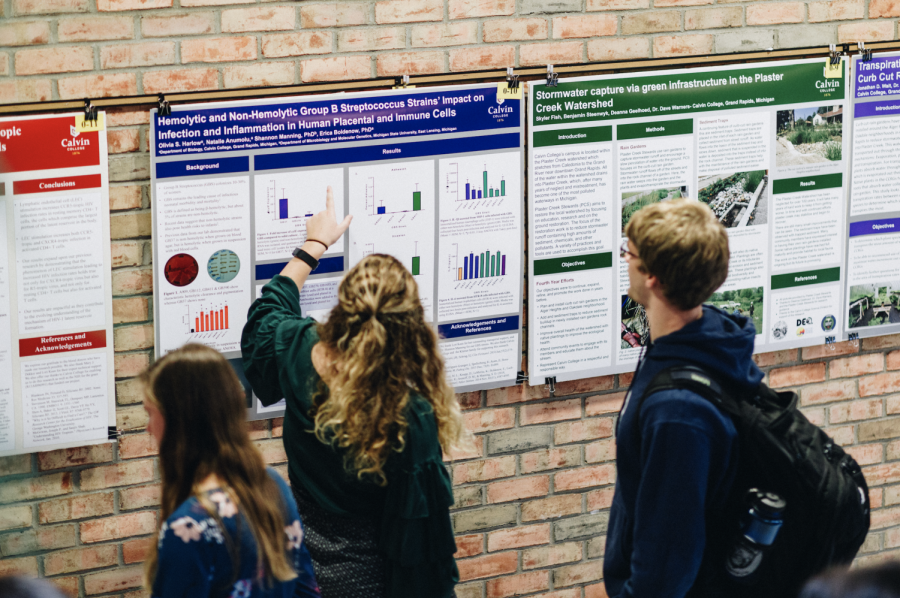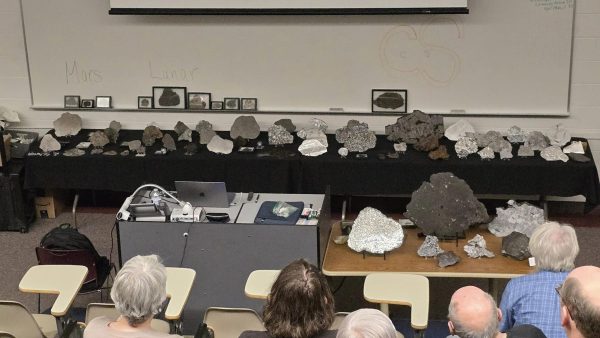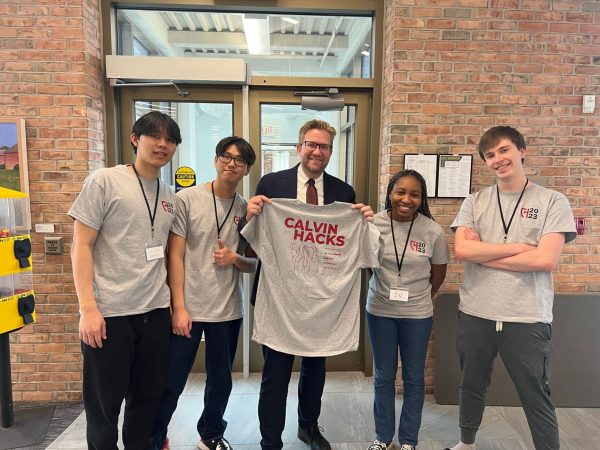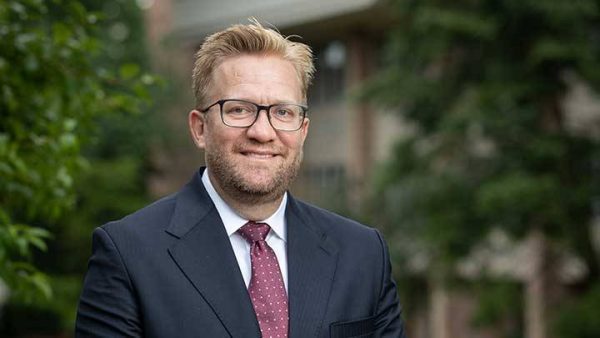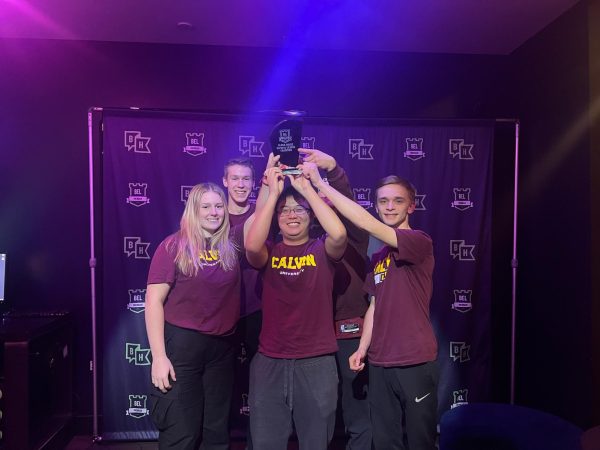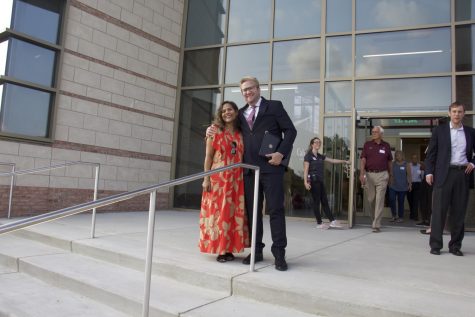Students showcase research at science division poster fair
On Friday, Oct. 19, students who conducted scientific research over the summer were given the opportunity to share their research with the Calvin community through a poster fair. For around three hours, the researchers stood beside their posters and talked to the fair’s attendees about the projects they had conducted. The posters will remain up through Nov. 1 in order to maximize the opportunities for people to see them. The researchers represented diverse STEM fields, including biochemistry, mathematics and geology, to name just a few.
One of the projects presented was about the Silver Creek retention pond. The study was conducted by Joey Mellinger, Katherine DeHeer and Tokechukwu Ndika. Dr. Kelly DuBois served as their faculty mentor. Speaking about the project, Mellinger explained that Plaster Creek Stewards had built the pond in 2012, and that this project was examining the effectiveness of green infrastructure. Specifically, the group compared E. coli and coliform levels in water samples around the area, and concluded that the pond was doing its job of helping clean up the water. Funding for this project was obtained through the Michigan Department of Environmental Quality.
Another poster on display at the fair displayed a study comparing brownfield redevelopment in Flint versus Grand Rapids. Christina Bohnet conducted this research along with Dr. Mark Bjelland, a geology professor. Bohnet explained that a brownfield is a vacant or underused property with suspected or proved environmental contamination. Flint has several very large ones left over from General Motors, while brownfields in Grand Rapids are smaller, making them easier to redevelop. Bohnet also explained how falling property values in Flint make brownfields harder to develop because a redevelopment program known as TIF (Tax Increment Finances) depends on high property values. She said that her favorite part of this project was “making maps that tell a story.”
A group of students interested in biochemistry spent the summer studying ways to combat gram-negative bacteria by trying to make a derivative of the drug QPT-1. The group included students Riley Scoville, Luke Burroughs, Joshua Kuypers, Eramurie Maedeindorp and faculty mentor Dr. Michael R. Barbachyn. Their research was funded by the Walter Reed Army Institute of Research. When asked about his favorite part of the project, Scoville said, “It’s cool to see compounds you’ve made being tested and working.”




